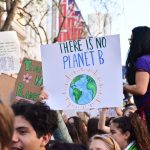In the first federal prosecution of a former President in US history, former President Donald Trump has been ordered to refrain from discussing his ongoing classified document case with co-defendant Walt Nauta or potential witnesses. The decision was made during Trump's arraignment, during which he pleaded not guilty to 37 counts involving documents seized from Mar-a-Lago last year. While the order represents a minor retreat from what was initially proposed, which is viewed as a victory for Trump and a triumph for special counsel Jack Smith, it poses a challenge for the former president as he continues to actively campaign for the White House. The order prohibits discussing the case directly with Nauta and witnesses, but the order's ambiguity raises questions about its enforceability.
Inside Trump's Unprecedented Arraignment: Court Order Poses Complicated Campaigning https://t.co/2GnF8qapzt
— Marlon East Of The Pecos (@Darksideleader2) June 15, 2023
During the arraignment hearing, Judge Jonathan Goodman contemplated a ban on Trump contacting Nauta or potential key witnesses, which would have required communication to be conducted through their attorneys. However, Attorney Todd Blanche objected to this approach, which was ultimately rejected by Judge Goodman, who ruled that Trump could communicate with Nauta and others in his orbit as long as he refrained from discussing the case's facts. Legal professionals refer to this as a compromise, but they remain skeptical of its enforceability.
President of the conservative investigative organization Judicial Watch and Trump supporter Tom Fitton criticizes the vagueness of the order. Fitton questioned Trump's ability to campaign without mentioning the case, insinuating that the order impedes his candidacy and that its ambiguity virtually ensures conflict between Trump, the Justice Department, and the judge overseeing the case. The order's enforceability is problematic, and its logistics raise unanswered questions, such as whether Trump, given his public profile and campaign activities, can state he would like to discuss the matter.
Trump resumed his campaign activities alongside Nauta shortly after his arraignment. He appeared at a Miami restaurant loaded with supporters and attended a New Jersey fundraiser. During his speech at Bedminster Golf Club, Trump called the investigation a politically motivated witch hunt. Some legal analysts believe Trump's remarks came perilously close to violating the order, given the presence of potential witnesses with whom he had agreed not to discuss the case. Due to Trump's active campaigning and the ambiguity of the gag order, prosecutors may seek further clarification or expand its scope if he engages in inappropriate communications.
The unprecedented arraignment posed a communication challenge, and the court order presents logistical difficulties, which further complicated Trump's campaign. The order prohibits Trump from communicating with Nauta or witnesses about the facts of the case, and its enforceability is questionable. Given the ambiguity of the order and the potential for confrontations with the Justice Department and the presiding judge, Fitton queries how Trump's campaign can continue without mentioning the case.




